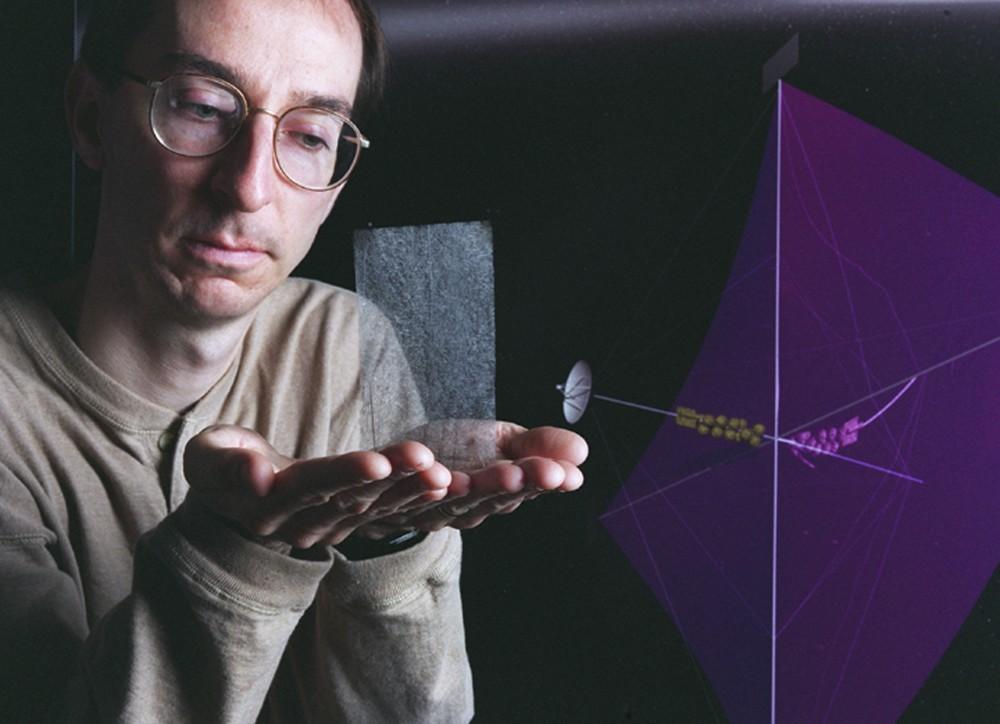NASA scientist to talk space, energy

Courtesy Photo / Les Johnson hold a spall piece of solar sail material. Johnson will be speaking at Grand Valley on February 28th.
Feb 21, 2011
Grand Valley State University students will get a chance to learn about space and how it can help the environment from NASA scientist Les Johnson.
Johnson, deputy manager for NASA’s Advanced Concepts Office, will hold a public talk, “How Space Development May Help Solve Our Energy and Environmental Problems on Earth,” at 7:30 p.m. next Monday at the Loosemore Auditorium.
According to NASA’s website, the ACO “develops new and innovative concepts for subsystems, spacecraft systems, payloads, transportation systems, and mission and system architectures.”
Brett Bolen, an assistant professor of physics who has known Johnson for many years, said Johnson will visit GVSU to reach out to the students.
“Part of his job at NASA is to perform outreach to the general public, so he was very willing to come to GVSU to give an outreach talk,” he said.
Johnson, who has worked with NASA for 21 years, will give two talks at GVSU – one about solar sails for physics students and the other about space development and the environment for the general public.
Johnson said his discussion topics are important so people can know about what NASA is doing.
“I think it’s important for students to know what some of the cutting-edge technologies are and how what they’re studying directly applies to what were working on,” he said. “A big part of it is to basically go and interact with the students and let them know what were working on and why it’s important that what they’re doing will relate to how we do things in the future.”
Bolen said Johnson’s public talk at GVSU will be important for students because he will discuss subjects that affect the entire planet.
“Energy and the environment are two of the greatest problems facing the U.S. and the world today,” Bolen said. “It is unreasonable to think that conservation alone will solve these problems. Technology will have to play a role if we are to seriously deal with these issues. NASA is attempting to propose some solutions to these seemingly intractable problems. I hope that Mr. Johnson’s talk will raise awareness in the GVSU community of both these problems and some interest in NASA’s proposed solutions.”























